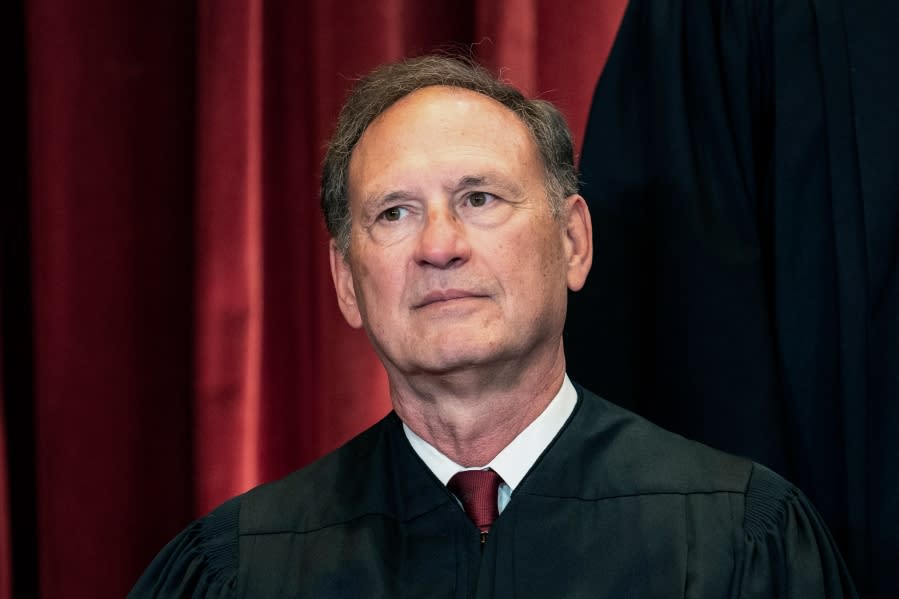Alito pokes fun at foreign leaders’ criticism of decision to overturn Roe v. Wade

- Oops!Something went wrong.Please try again later.
Supreme Court Justice Samuel Alito poked fun at the criticism that multiple foreign leaders gave of the court’s June decision to overturn Roe v. Wade.
Alito spoke at the Notre Dame Law School’s Religious Liberty Summit in Rome last week, pointing to a “narrowing” of religious speech in the judicial decisions of other countries. He said he was originally not planning to reference specific examples as he was preparing his remarks, but he considered changing his mind given foreign leaders’ comments on the court’s decision in Dobbs v. Jackson Women’s Health Organization, which struck down the federal right to abortion.
“I’ve had a few second thoughts over the last few weeks since I had the honor this term of writing I think the only Supreme Court decision in the history of that institution that has been lambasted by a whole string of foreign leaders who felt perfectly fine commenting on American law,” Alito said.
He said one leader who commented was British Prime Minister Boris Johnson, but he “paid the price,” jokingly referring to Johnson’s decision to step down as prime minister once a successor is chosen.
Johnson said after the decision that he recognized the decision is not in the United Kingdom’s jurisdiction, but he called it a “backward step” for the United States.
Alito noted criticism from French President Emmanuel Macron and Canadian Prime Minister Justin Trudeau but said he was particularly “wounded” when the Duke of Sussex, Prince Harry, seemed to compare the decision with Russia’s invasion of Ukraine during a speech to the United Nations.
Harry gave a speech last month in which he mentioned a “global assault on democracy and freedom,” to which he said the war in Ukraine and “the rolling back of constitutional rights” in the United States contributed.
Alito said he would not discuss specific cases from other countries, but more than “positive law” is needed to win the battle to protect religious freedom in an “increasingly secular society.”
He said the challenge is to convince those who do not identify with any religion or view religion as negative that religious freedom is worth protecting.
For the latest news, weather, sports, and streaming video, head to The Hill.

